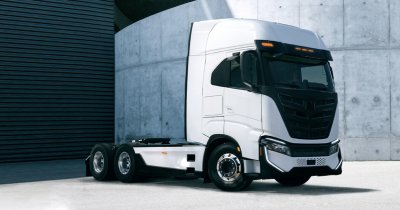According to Electrive, officials from the two companies stated that their drive systems will be developed firstly for trucks and buses.
After the testing period is successfully ended, the fuel cell power systems can be installed on rail and farming applications, among others.
Freudenberg is assigned to develop the fuel cell system, which will include batteries for extra power, while ZF will be working on the electric drive system itself, which should provide as much as 360kW (482 HP) of continuous power.
The first prototype is to be tested in 2023 on public roads and series production should begin shortly after that.
Mohsen Sohi, CEO of the Freudenberg Group, said that "we are investing heavily in the mobility of the future. In battery, hydrogen and fuel cell technology as well as in the development of high-tech components for electric vehicles."
Wilhelm Rehm, ZF Board Member, added that "together with Freudenberg, we can offer a ‘one-stop-shop’ solution enabling manufacturers to quickly bring e-mobility solutions to market and supporting the industry’s transformation towards a more sustainable future."
"By reducing manufacturers’ development and project costs, our powerpack solutions will also help to lower the Total Cost of Ownership", he mentioned.
 Mihai - Cristian Ioniță
Mihai - Cristian Ioniță












Any thoughts?